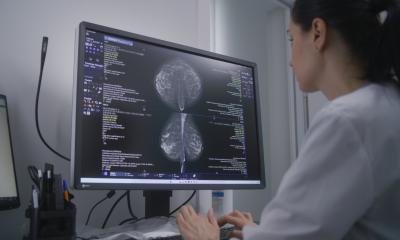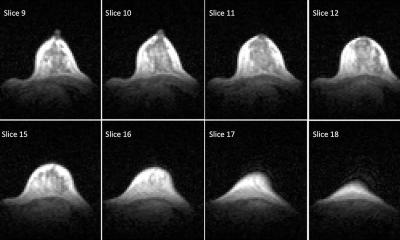Improving survival of metastatic breast cancer patients
Removal of the primary breast tumour in women whose cancer has already spread to other parts of the body can have a significant effect on their survival, Dutch researchers have found. Their research meant that women who were diagnosed at a late stage of the disease could expect to survive longer. They discovered that those patients who had received surgery survived for considerably longer than those who had not.
The research group from Jeroen Bosch Hospital, Den Bosch, The Netherlands, working under the supervision of Dr Miranda Ernst, carried out a retrospective study of 728 patients who had been found to have distant metastatic breast cancer at first diagnosis. The patients attended hospitals in the Comprehensive Cancer South region, and represent five percent of all patients with breast cancer in that region. “Between three and ten percent of all of patients presenting with breast cancer in the region have Stage IV breast cancer at first diagnosis,” says Dr Jetske Ruiterkamp, a surgical resident from the Jeroen Bosch Hospital, “and because this is considered to be an incurable disease, the majority only receive palliative treatment. However, some 40% of the patients studied had had surgical removal of their breast tumour and we decided to look at the impact this had on their survival.”
The researchers discovered that those patients who had received surgery survived for considerably longer than those who had not – an average of 31 months as opposed to 14. The five-year survival rates of the two groups also showed significant differences, with 24.5% of the surgery group being still alive five years later, whereas only 13.1% of those did not have surgery were still living five years on. Even after adjusting for age, period of diagnosis, the number of metastatic sites and different types of treatment, whether or not the women had had surgery was an independent prognostic factor.
“There are a number of possible explanations for this,” said Dr Ruiterkamp, “but we think that the most likely is that by excising the primary tumour, we reduce the number of circulating tumour cells elsewhere in the body. It is also possible that surgery reactivates the immune system.”
The researchers are currently analysing further information from the patients in order to find out more about how they were diagnosed with late-stage disease, for example by screening or because of symptoms of the metastases, and what kind of treatment they received. They also intend to look at the type of surgery and the surgical margins involved.
“We hope this will give us a better insight into which patients with metastatic breast cancer would benefit most from surgical removal of the tumour,” said Dr Ruiterkamp. “Our very preliminary results seem to show that patients who did not receive surgery were more likely to have metastases that presented symptoms, and thus more severe disease, than those who had surgery of the primary tumour. We now intend to see whether there is a significant difference between the two groups and whether it affects overall patient survival.”
“We also hope to be able to enlarge our field by studying data from all the patients diagnosed with metastatic primary breast cancer,” she said. “This will mean looking at the records of about 10,000 patients diagnosed in The Netherlands over the last ten years. In co-operation with the Dutch Breast Cancer Research Group, we will also try to set up a national randomised controlled trial to investigate the effect of surgery of the breast tumour in such patients.”
The researchers believe that their results may lead to major changes in the treatment of patients with Stage IV breast disease. “Although we know that metastatic breast cancer is incurable, if we can improve survival and, at the same time, improve the quality of life for these patients, we will have made a major step forward,” said Dr Ruiterkamp.
Watch Dr Ruiterkamps congress lecture at www.ecancermedicalscience.com/tv/
23.09.2009





